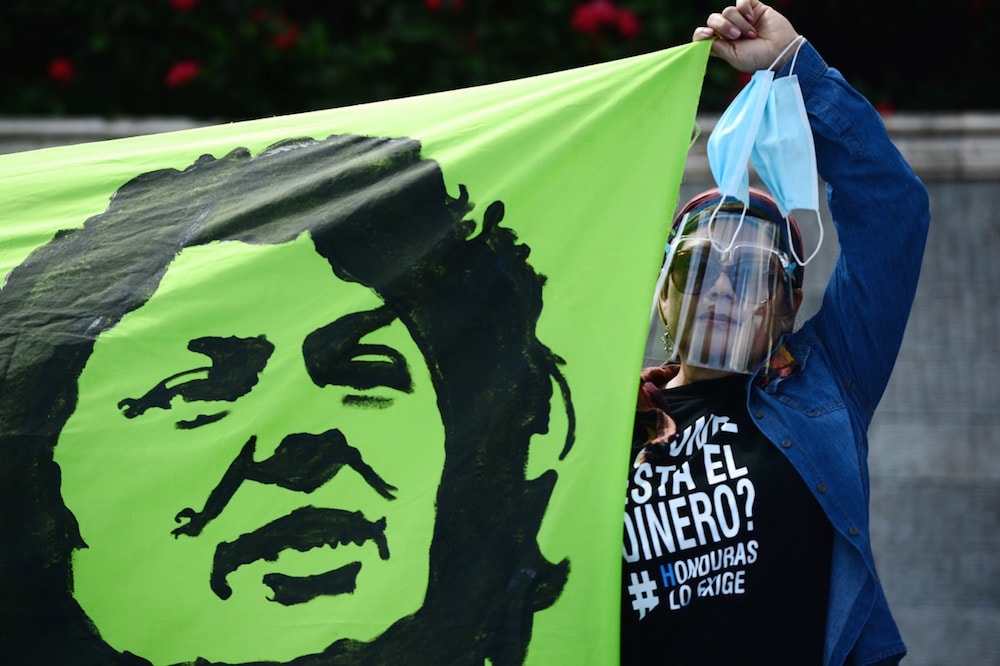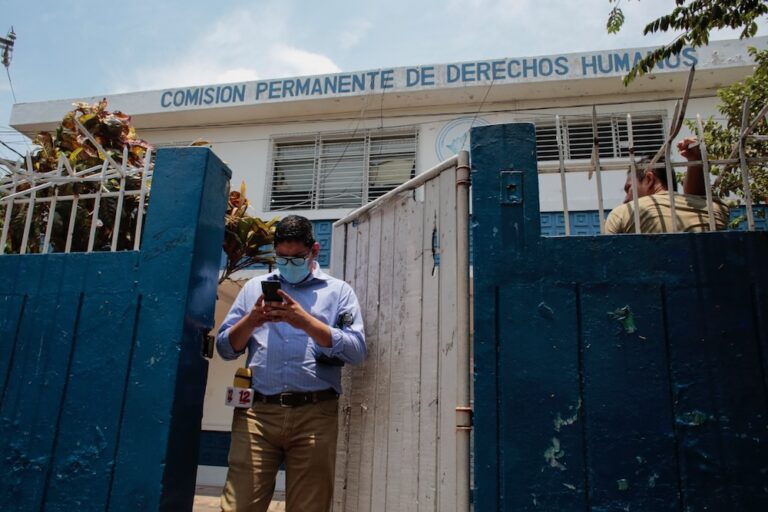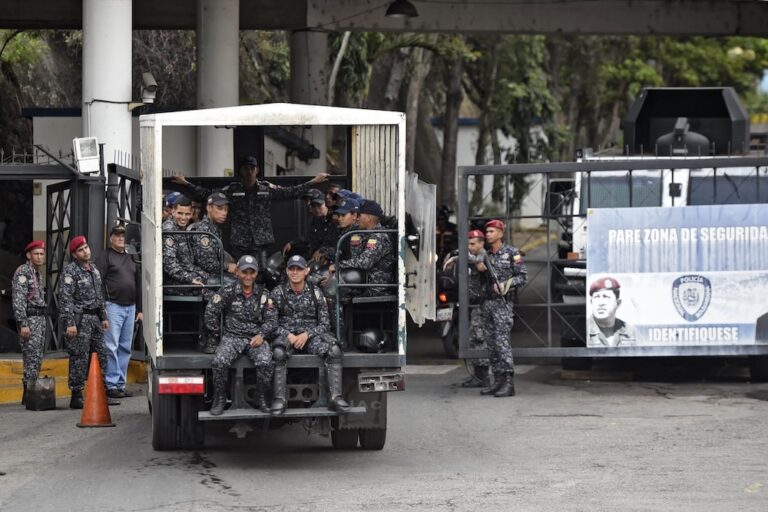February 2021 in the Americas: A free expression round up produced by IFEX's Regional Editor Paula Martins, based on IFEX member reports and news from the region.
Journalists are not the enemy
On 8 February 2021, IFEX’s Colombian member Fundación para la Libertad de Prensa (FLIP) released its 2020 annual report.
The report highlights espionage operations targeting journalists, the abusive use of force by police against the press during public demonstrations, and the dismissive and stigmatizing behaviour of higher-level officials against the media. According to FLIP, all the cases point to a clear message: the press is seen as the opposition, and there is no tolerance for critical thinking.
With respect to journalist safety, in the last four years eight journalists have been murdered in the country, and 618 threats have been reported. That makes Colombia the second deadliest country on the continent, just after Mexico. During the year of the pandemic, 193 journalists were threatened, 10% more than in 2019. Two journalists were killed: Abelardo Liz and Felipe Guevara. It also draws attention to twenty cases of attacks against female reporters in 2020 in which there was an element of gender violence. The assaults ranged from online harassment and threats to sexual violence.
FLIP highlights that these threats and murders occurred while billions of Colombian pesos were invested in a protection mechanism that unfortunately has lost its effectiveness and legitimacy, pending a promised ‘restructuring plan’.
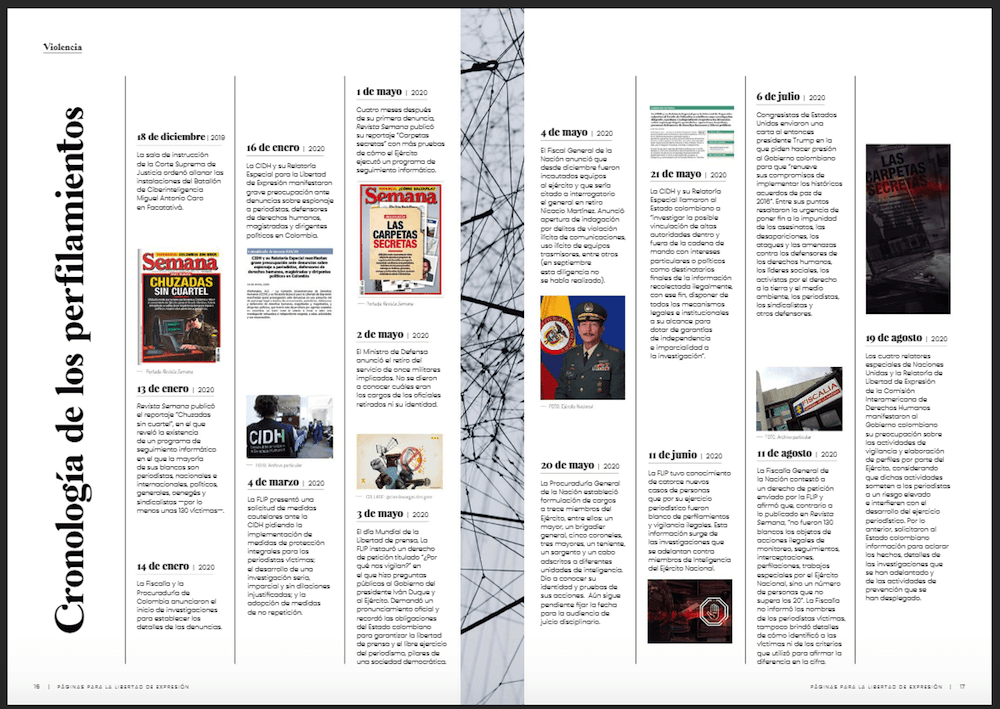
Páginas para la libertad de expresión, FLIP
The report also includes a chronology of scandals concerning the profiling of journalists by the armed forces. FLIP decries the lack of transparency around the disciplinary cases opened against the 13 military officials involved in the surveillance scheme, and the absence of information about a promised public hearing. (To learn more about this case, see my 2020 feature “Unnecessary, disproportionate and widespread: The normalization of surveillance in Colombia and Latin America.”)
And last but not least, the report highlights the difficult economic situation of media outlets in Colombia – a situation that became critical after the pandemic. FLIP notes that in early 2021 the government began signalling that aid measures targeting the sector were forthcoming – and that at this point, the survival of many outlets depends on such measures.
A hearing, finally
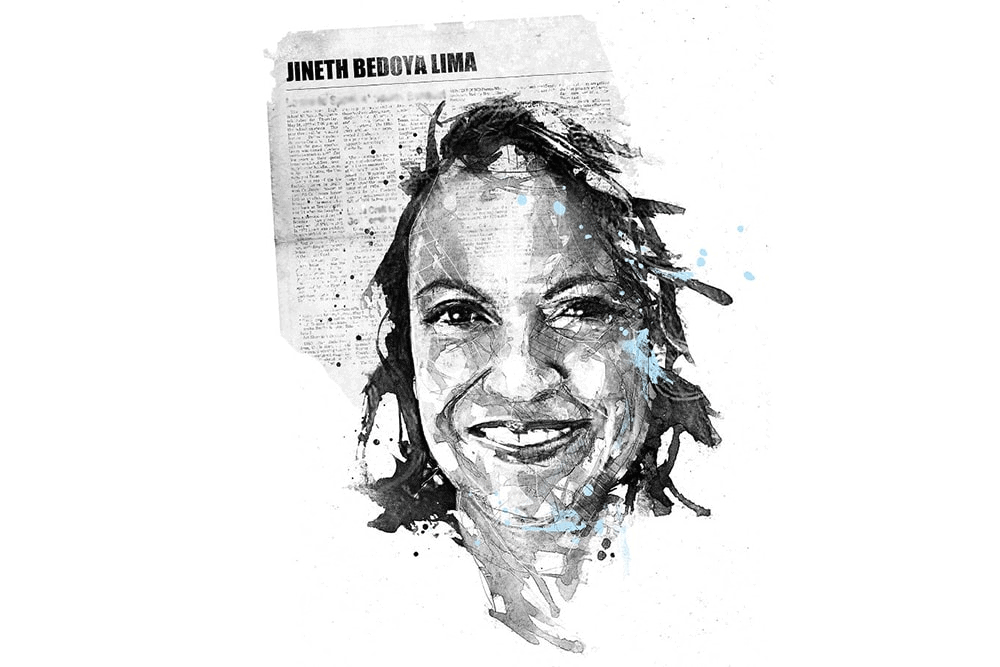
IFEX/Florian Nicolle
The Inter American Court of Human Rights has scheduled a hearing in the case of Colombian journalist Jineth Bedoya for 15 March 2021. The case has been followed by FLIP for years, and IFEX will be presenting an amicus curiae to support the discussions concerning both the issue of impunity and gender-based violence against women journalists. FLIP and Jineth have released a video describing her 20-year struggle for justice.
On 15 March, #NoEsHoraDeCallar – It’s Not the Time to be Silent! Follow the hearing and related activities via @FLIP_org.
And justice for Berta!
Five years after the assassination of renowned Honduran rights defender Berta Cáceres, the trial of the accused mastermind behind her murder has been scheduled for June 2021.
Berta was killed in 2016. She had spent years trying to protect her community’s land in western Honduras from the construction of a dam that threatened a vital and sacred water source for the indigenous Lenca people. In 2018, seven men were convicted for the killing. The court, however, considered that executives from the Agua Zarca company, Desa, were behind the crime, motivated by the losses they were suffering due to delays resulting from the community’s protests and complaints. Desa’s president – David Roberto Castillo Mejia – was arrested and indicted that same year, when he was about to fly to Houston. Now, he will face trial.
Berta’s family and the organization where she worked, COPINH, are suing the Dutch entrepreneurial development bank for financing the Agua Zarca dam (alongside a coalition of international investors), even after they received warnings from the local community, including from Berta, that there had been no prior consultation and that the dam was about to cause irreversible harm to the community.
On the anniversary of Berta’s death, Mary Lawlor, the UN Special Rapporteur on Human Rights Defenders, wrote about the case and concluded: “The murders of human rights defenders are not inevitable, many are signalled in advance, and yet governments fail, year after year, to provide enough resources to prevent them, and fail, year after year, to hold the murderers to account. In fact, states should not only end impunity but also publicly applaud the vital contribution that human rights make to societies.”
The virus of censorship
IPYS Venezuela has launched its 2020 annual report. According to their records, 374 incidents took place between January and December, adding up to 635 violations against freedom of expression and access to public information. 194 of the victims were journalists.
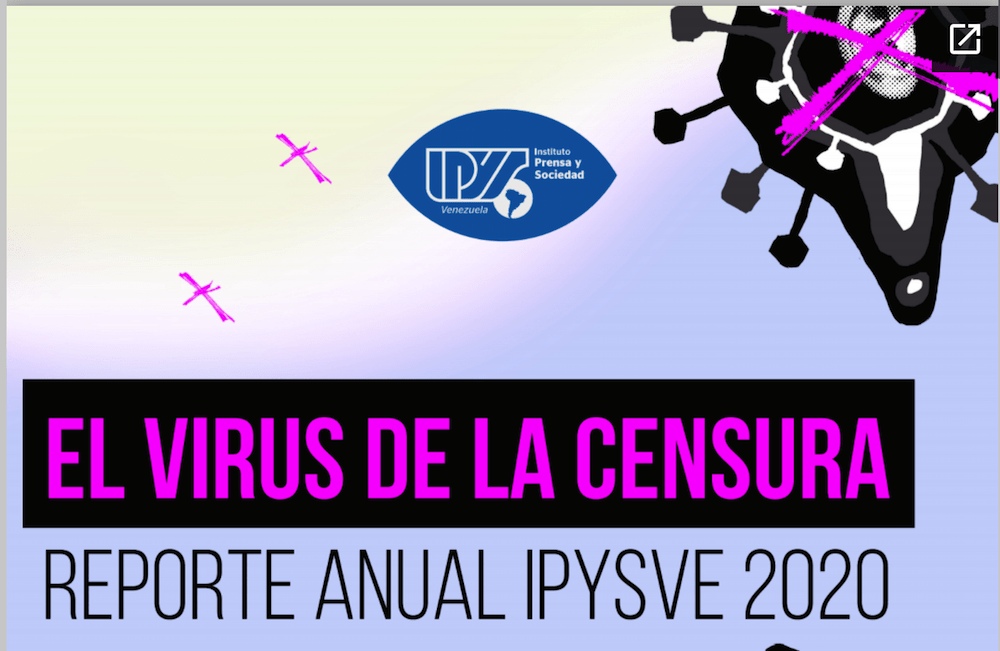
Violence, arbitrary detentions, and limitations of access to information and judicial processes were far too common. These are the main mechanisms of “control and oppression executed by the authorities and state entities” documented by IPYS. They were used to silence and further weaken the exercise of rights in the country. IPYS also reported two murders and one attempted murder in 2020.
During the lockdown called in response to the pandemic, the number of arbitrary arrests increased, some followed by questionable legal proceedings. These arbitrary detentions were carried out by the police, the military, and the intelligence service.
Finally, the report describes the precarity in which press workers carry out their work, in the midst of a lack of access to basic services, such as electricity, water, gas, and several disturbances in the telecommunications networks.
The right to information? Vaccination in the shadows
Ecuador’s Minister for Health, Juan Carlos Zevallos, announced that vaccinations in the country will be carried out under confidentiality. The Ministry also forbade press access to vaccination sites to cover the distribution of the second dose of the COVID-19 vaccine. Furthermore, a Protocol issued by the Ministry concerning the second phase of vaccinations says that press conferences and declarations to the media by health personnel are not authorized.
IFEX member in Ecuador, Fundamedios, has reported that Zevallos already faces lawsuits brought against him for irregularities and lack of transparency in the vaccinations; on 12 February, the Public Defender’s Office announced his indictment for influence trafficking.
Local groups, including Fundamedios, are asking for the right of access to public information to be upheld in Ecuador.
Advertising disinformation
On 23 February, a group of doctors defending a supposed “early treatment” against COVID-19 published a paid statement (an advertisement) in eight newspapers in Brazil, including two of the larger ones, with false information about drugs that have been classified by scientists as ineffective against the disease. The document, signed by Medicos pela Vida (Doctors for Life), caused great debate amongst the press and media freedom groups in the country.
Critics affirmed that the publication of the piece crossed the boundaries of ethical behavior, at a time when Brazil was reaching 250,000 deaths due to the coronavirus, and in a context of disinformation that has gained tremendous reach through social media.
Brazilian IFEX member ABRAJI collected a series of interesting analyses from experts and practitioners in relation to the case that can be found here.
Open justice
On 3 February 2021, the Supreme Court of Mexico ruled that all the judges and magistrates of the country, at both the federal and local levels, are obliged to make public each and every sentence they pass.
The decision is the result of an amparo filed by the coalition #LoJustoEsQueSepas [It’s Fair for You to Know], formed by eight organisations including IFEX member ARTICLE 19 Mexico and Central America.
The amparo was filed after the group noticed sentences that caused great concern in terms of human rights and gender discrimination. One of these sentences, in a case concerning gender-based violence against a woman, reads: “She deserved the violence because she looks like a man.” Another states that “[b]ecause she doesn’t know what is normal and what is not, we cannot say if there was a violation”, in a case concerning a double attack against an indigenous woman with disabilities. In a rape case where the victim managed to hurt her attacker, a Mexico City judge ruled that there had been “an excessive exercise of self-defense.”
The amparo granted by the First Chamber of the Supreme Court also obliges all the judges and magistrates of the province of Zacatecas to make available all the sentences that have been issued in recent years.
Another amparo, this time on net neutrality
IFEX members R3D and Observacom have presented an amparo against the Mexican Federal Telecommunications Institute (Instituto Federal de Telecomunicaciones – IFT) for its failure to release guidelines on the protection of net neutrality.
The Mexican Federal Telecommunications and Broadcasting Law (Ley Federal de Telecomunicaciones y Radiodifusión – LTFR) establishes that the IFT should produce guidelines for the protection of net neutrality in Mexico, in compliance with the principles of free election, no discrimination, privacy, and transparency. However, six years after the law came into force, the IFT has not published such guidelines.
R3D and Observacom argue that net neutrality, and the guidelines, are needed to guarantee that internet access providers not engage in practices that violate users’ rights and are against the competition, innovation, and plurality that an open Internet allows.
While IFT argued that the issuance of the guidelines was at its discretion, the judge ruled that it is obliged to comply.
An inflection point for freedom of expression on the internet
The Inter American Commission on Human Rights is calling for a multistakeholder dialogue to come up with recommendations as to how to (i) improve conditions for democratic debate online, (ii) strengthen digital literacy efforts in the region, and (iii) help make content moderation compatible with human rights standards.
According to the IACHR, “the hemisphere is at an inflection point characterized by the widespread erosion of public debate, where democratic states face the potential spillover of online violence into physical spaces, with a certain capacity for harm; attempts to control the public discourse through disinformation and misinformation; and compatibility dilemmas between the processes, decisions, and business models of private companies and democratic and human rights standards.”
The IACHR later announced a call for participation in a hearing on content moderation, to take place during its upcoming session. The process will be led by the Office of the Special Rapporteur on Freedom of Expression (RELE).
In Brief
PEN America wins an important victory
On 18 February 2021, PEN America entered into a settlement agreement in a landmark first amendment lawsuit – the organization had challenged the US Government on behalf of its journalist members who were threatened and retaliated against by former president Donald Trump. According to PEN, the case sets an important precedent that shields reporters from retaliation by a sitting president.
Municipalities say no to surveillance
EFF has reported that Baltimore and St. Louis officials have voted against the maintenance in their cities of an aerial surveillance system employed in public safety that had originally been designed to protect soldiers on the battlefield. In the case of St. Louis, the decision is not yet final. Both cities, however, may be compelled to follow a court ruling in relation to the use of such a system. A group of organizations, including EFF, filed a friend-of-the-court brief in a federal civil rights lawsuit challenging Baltimore’s aerial surveillance program. Their expectation is that the Judiciary may soon shut down the program for good, for violating the US Constitution’s Fourth Amendment.
Speaking truth to power
Canadian Journalists for Free Expression (CJFE), in partnership with Committee to Protect Journalists (CPJ), organized a conversation with leading US and Canadian journalists inviting them to look back on the Trump era’s “War on the Media” and assess its lasting effects. The discussion was facilitated by journalist Adrienne Arsenault, and is available here.
Press freedom and access to information in Guatemala
Human Rights Watch and CPJ have affirmed that the government of Guatemala has failed to provide investigators and prosecutors with the resources necessary to strengthen protections for journalists and investigate attacks on the press, and that government officials’ anti-press rhetoric has increased during the pandemic. They also state that officials have repeatedly restricted coverage of government events and have failed to provide the press and the public with timely information about COVID-19 measures and cases. The organizations urge the Guatemalan authorities to urgently address the situation.
Violeta Chamorro Foundation is forced to closed its doors
Nicaragua. The NGO affirmed that a new law adopted by the government has made it too difficult for them to continue. The law seeks to exert control over groups that receive financial support from abroad. According to IAPA, “This new blow against freedom of expression leaves Nicaragua without one of its most powerful voices in favor of free journalism and freedom of expression.”
Journalists Alvarez Destiné and Méus Jeanril shot in Haiti
The two journalists were killed as police and armed forces dispersed protests in Port-au-Prince in early February. Destiné and Jeanril were covering protests calling for President Jovenel Moïse to step down. CPJ has called on authorities to thoroughly investigate the shootings, identify those responsible, and hold them to account.
